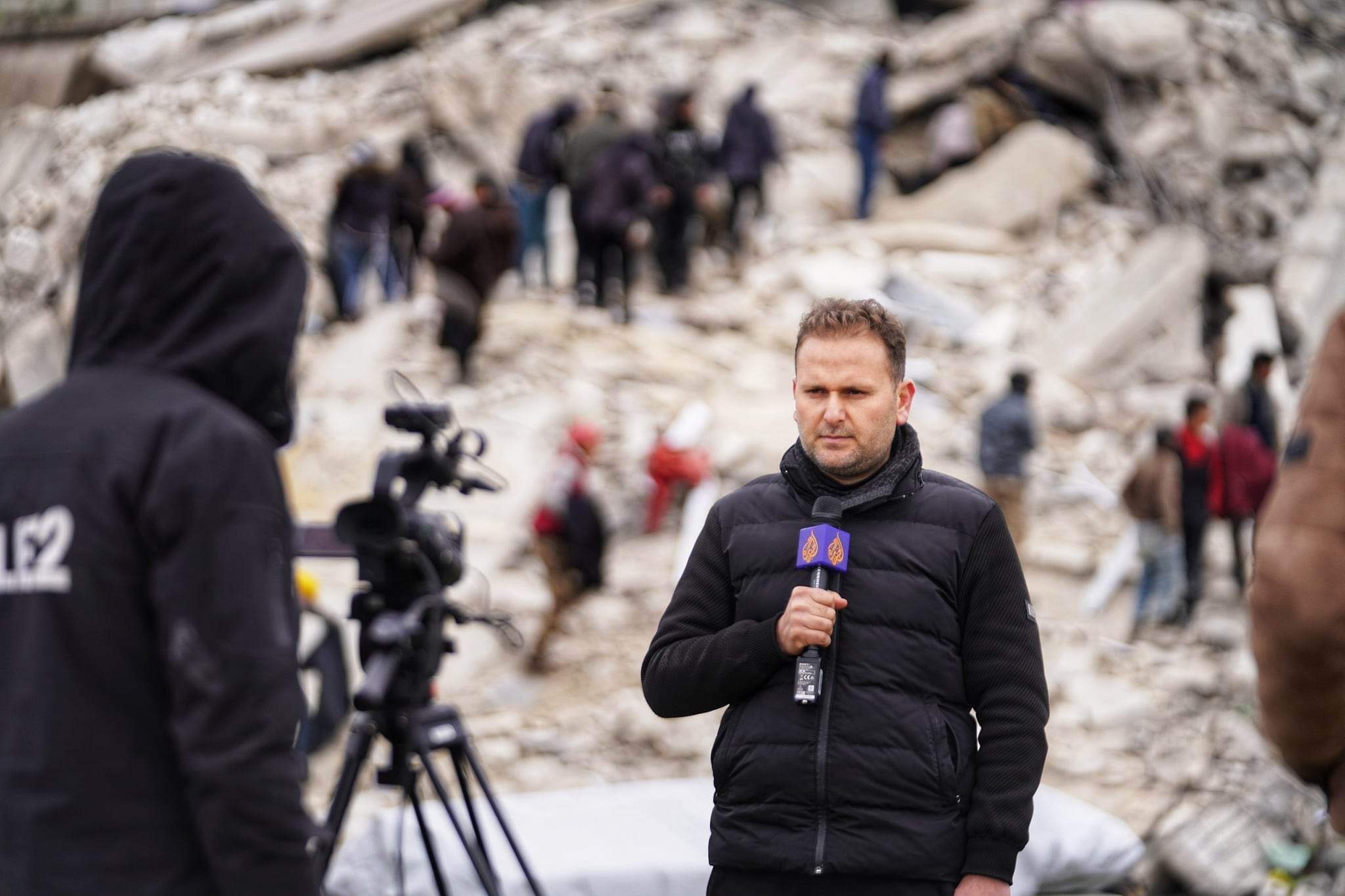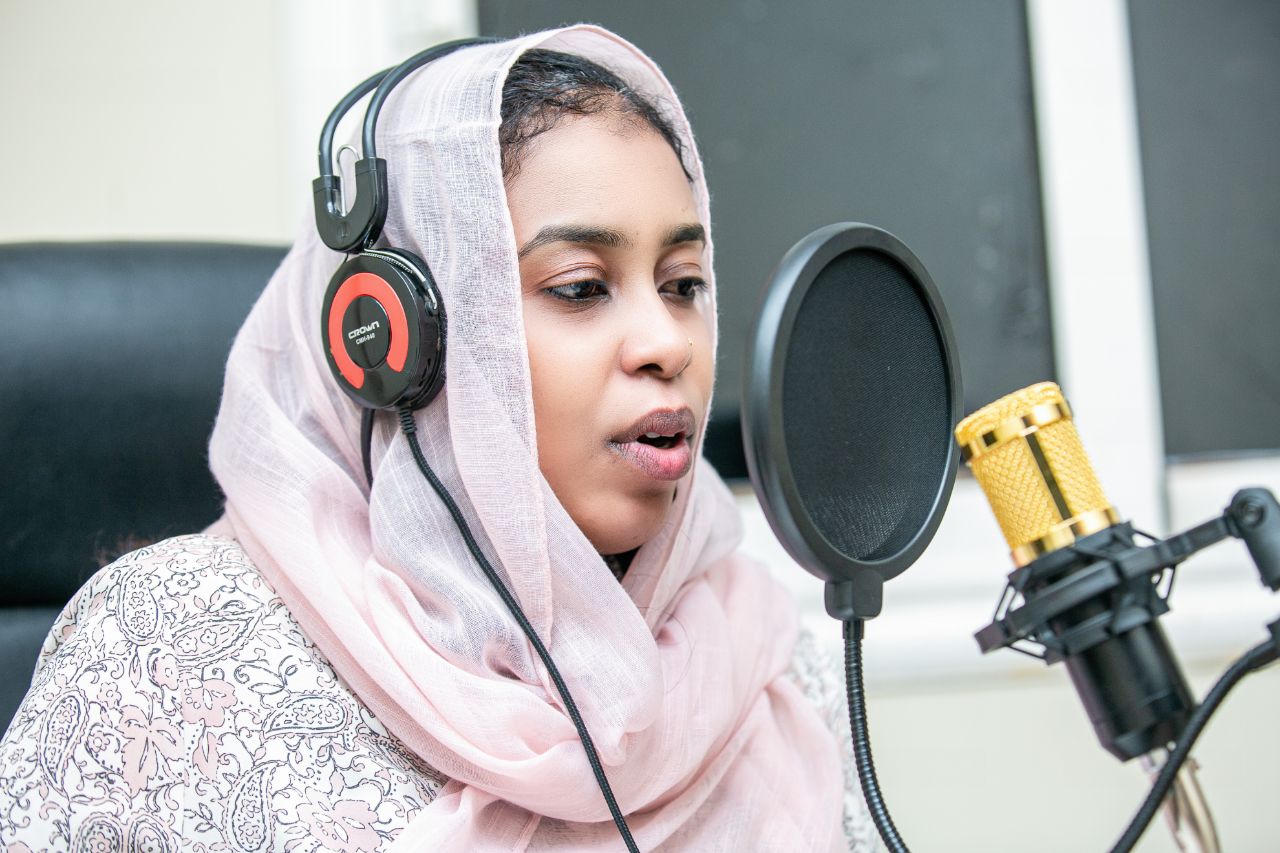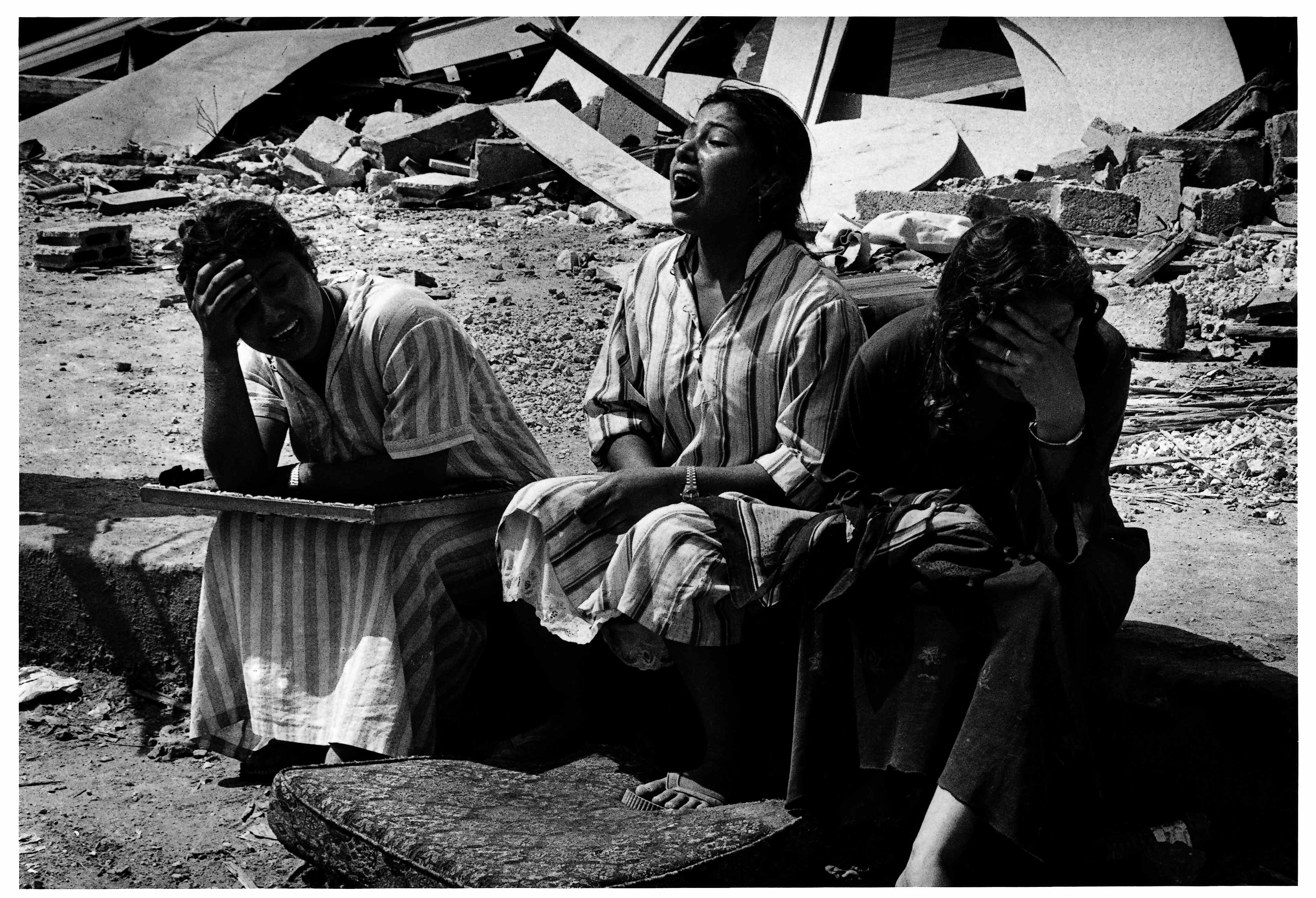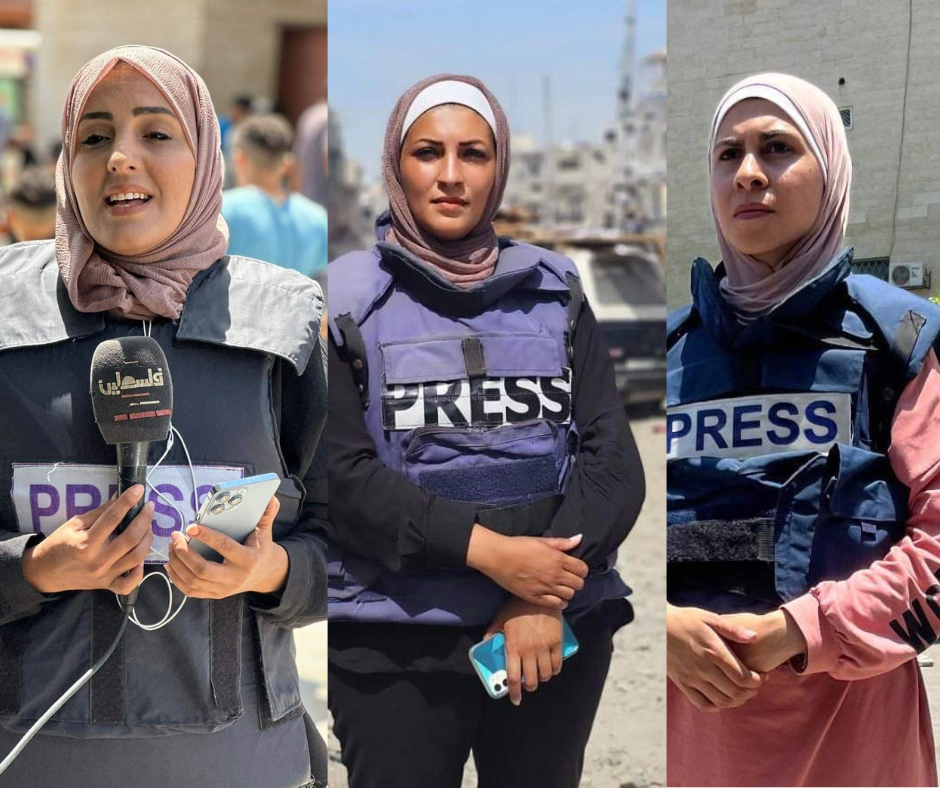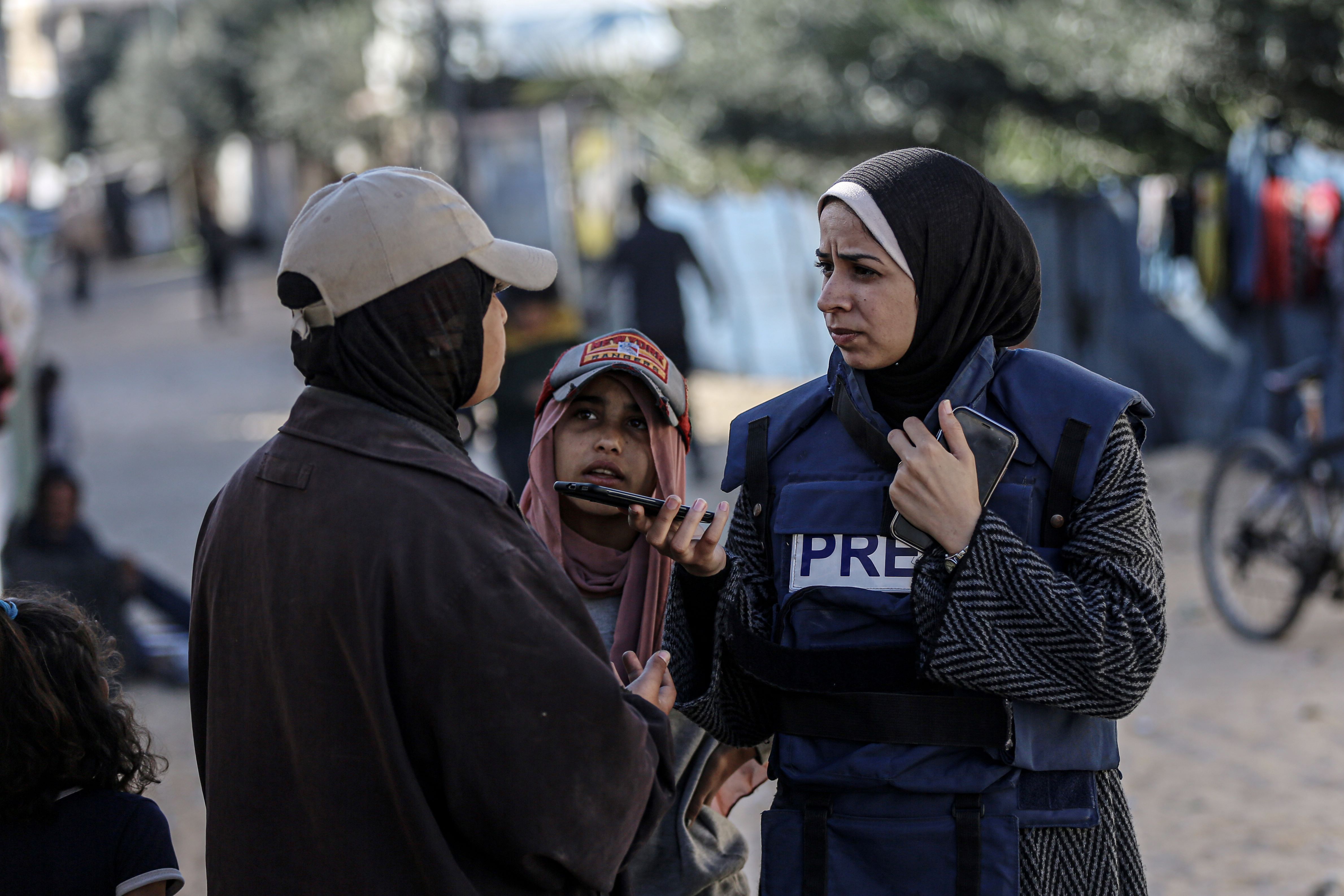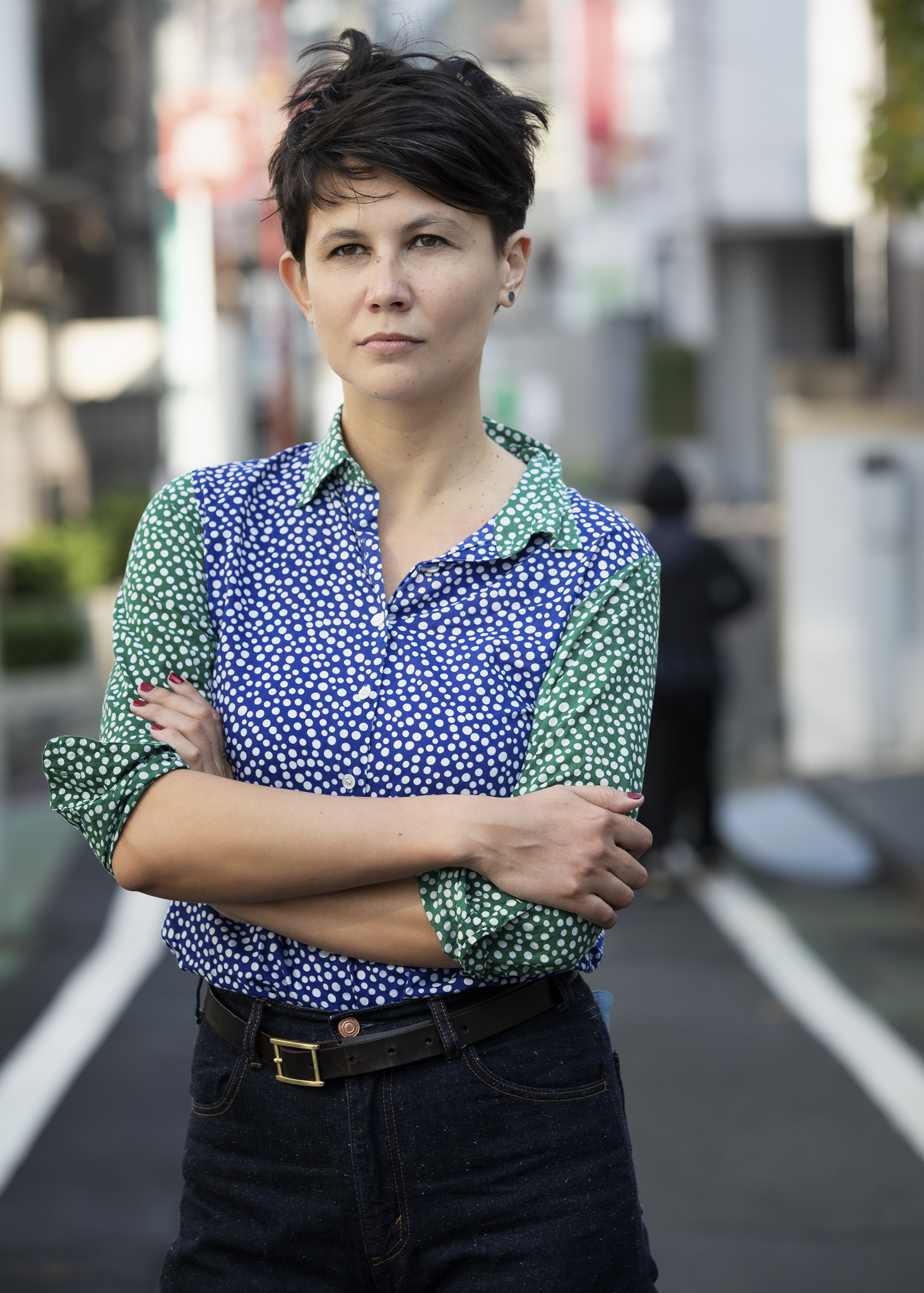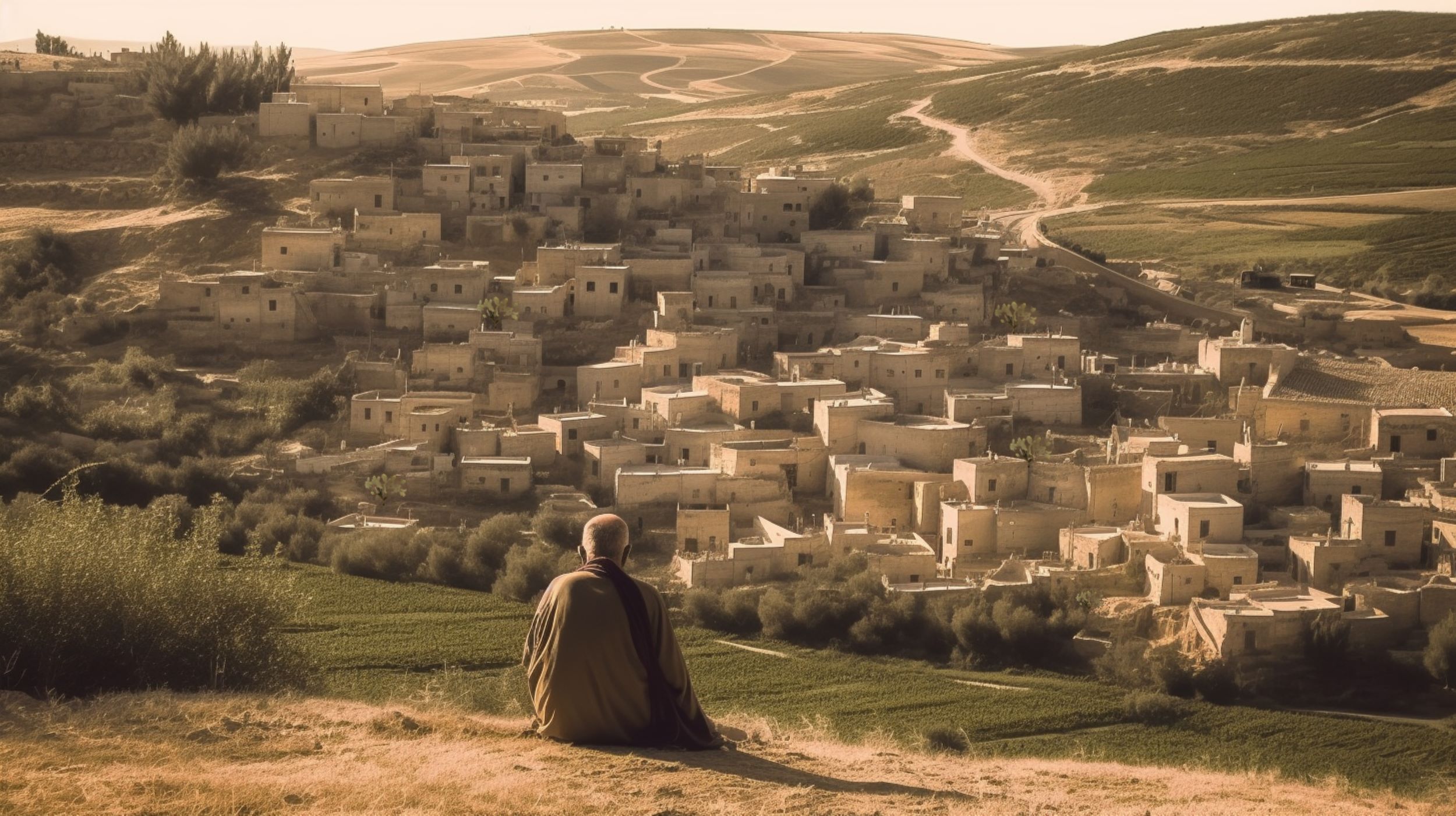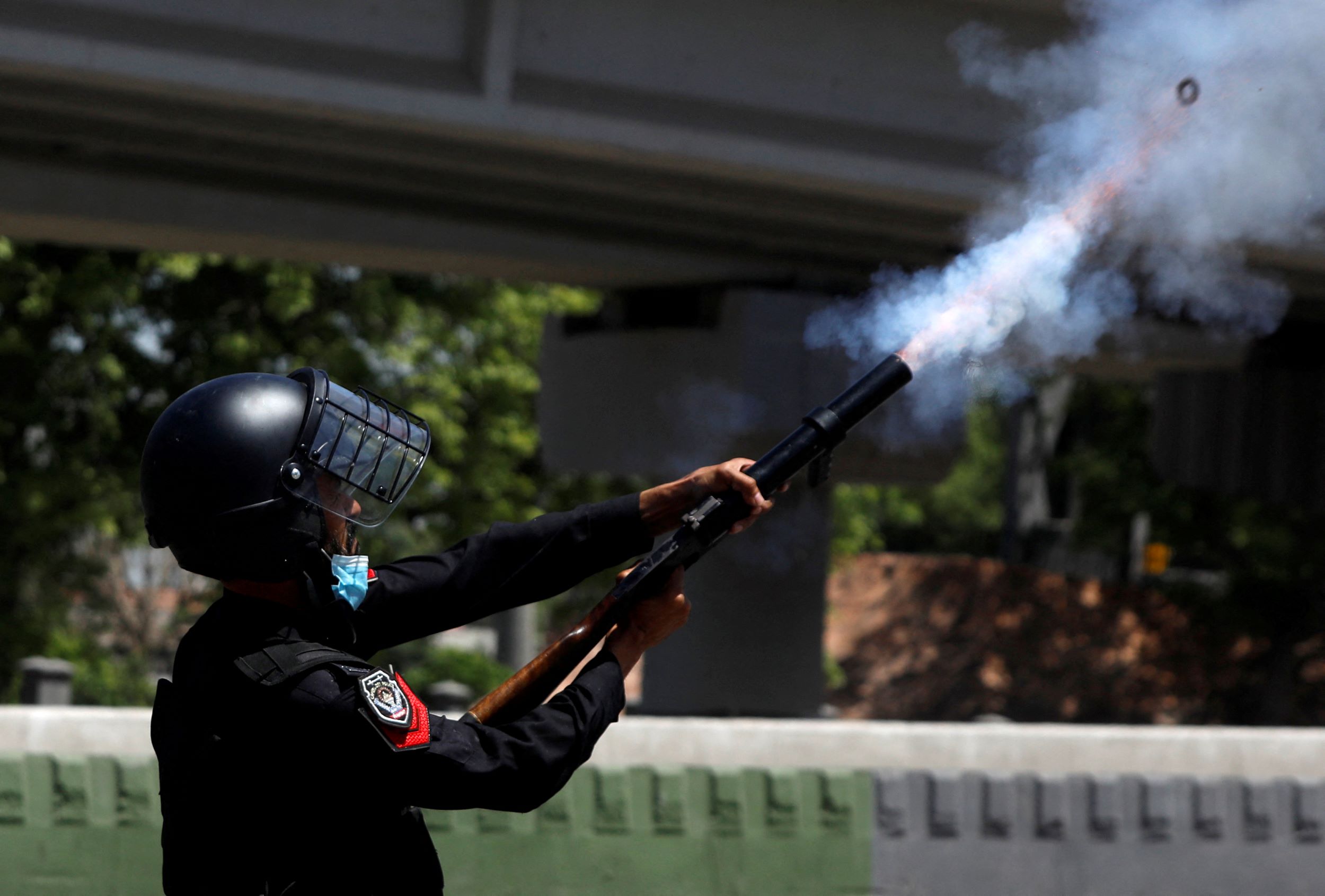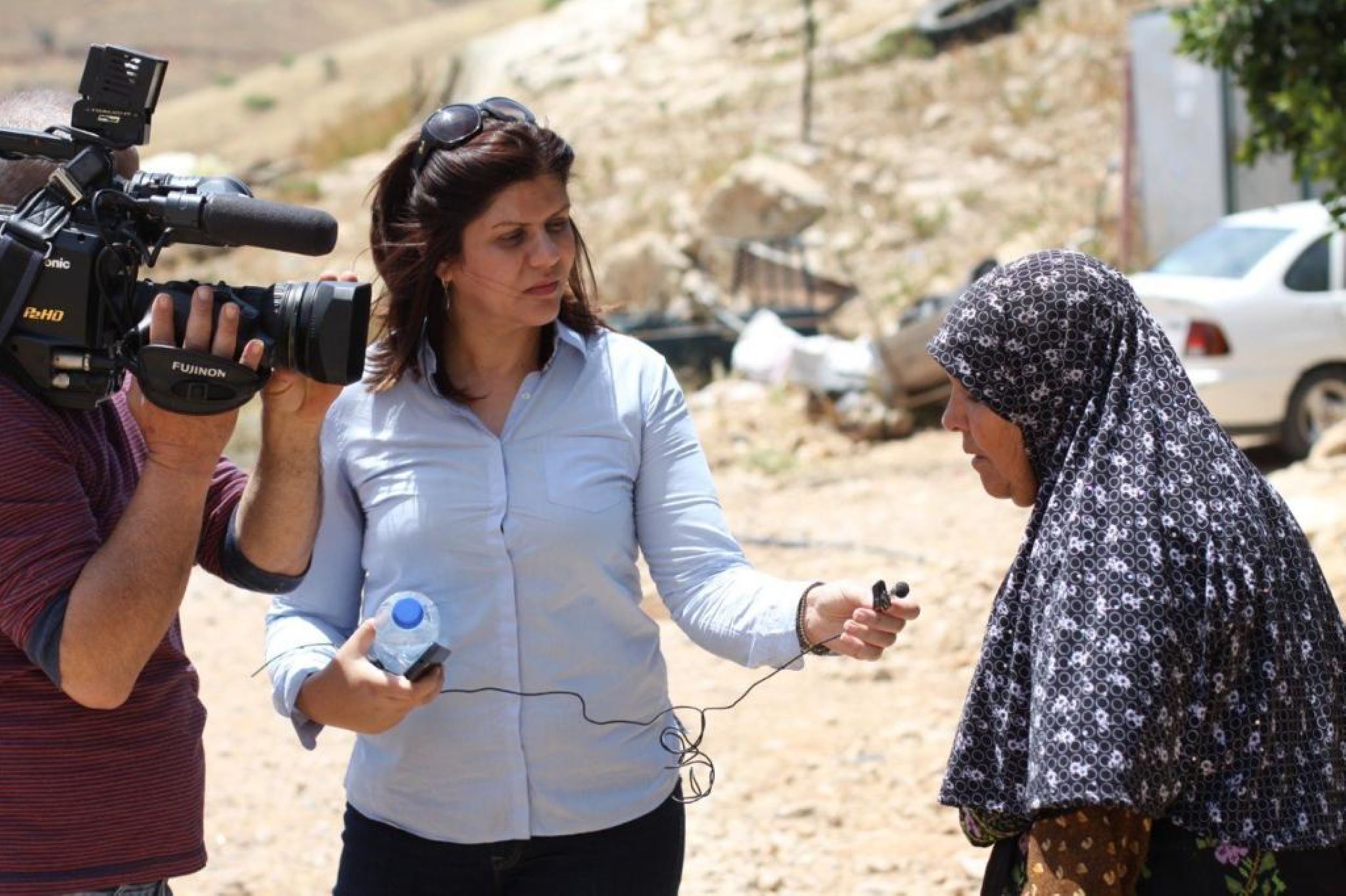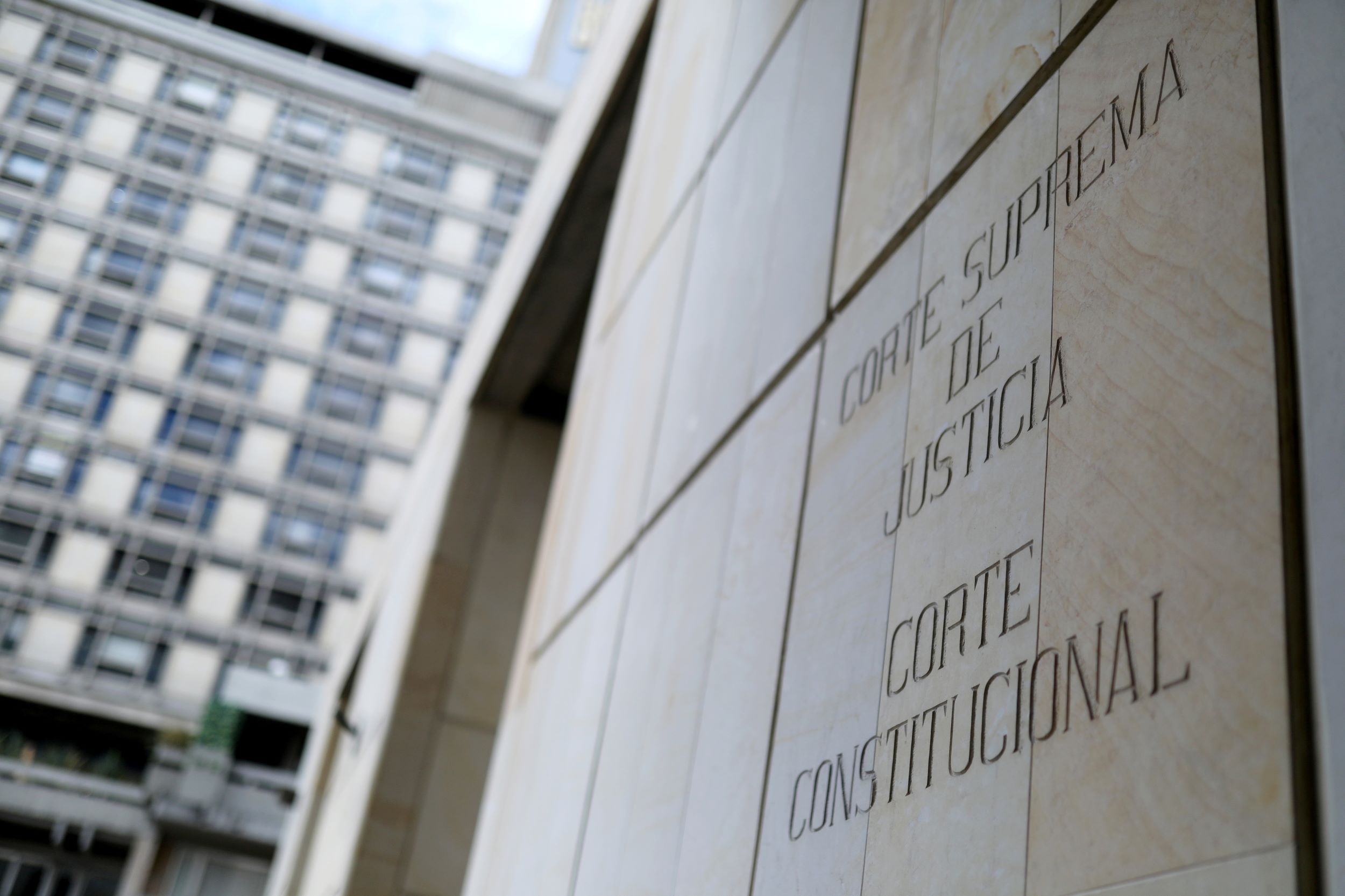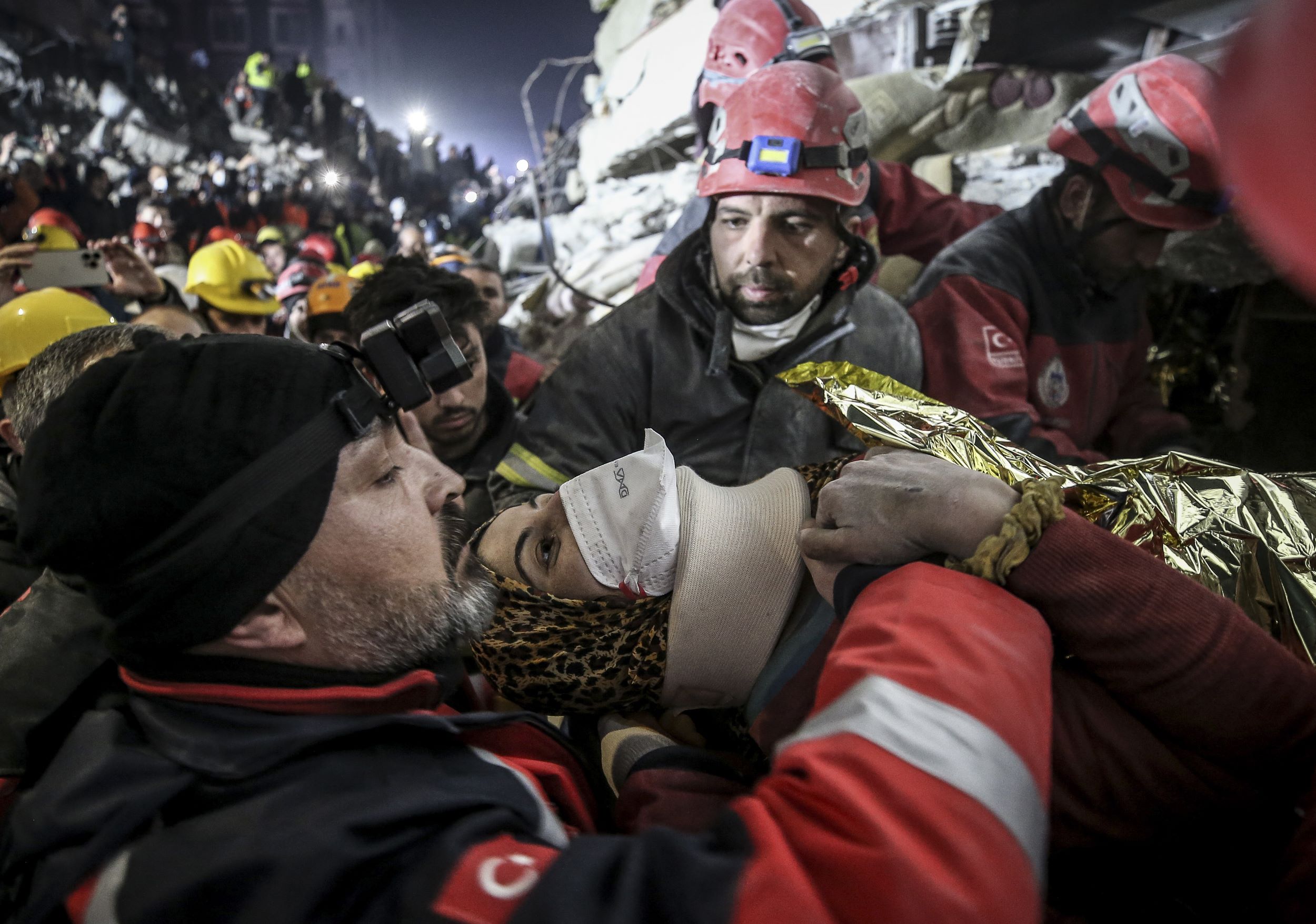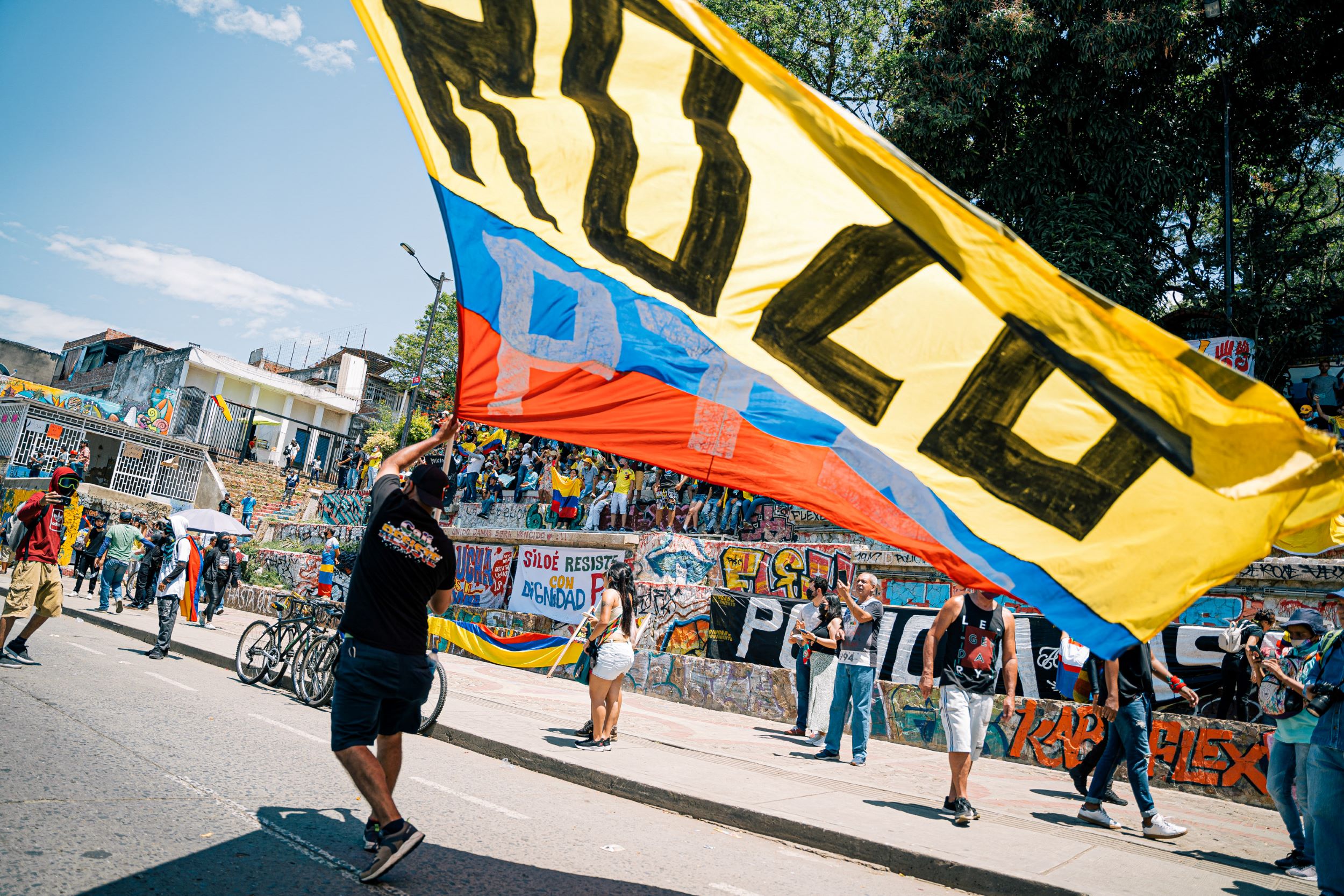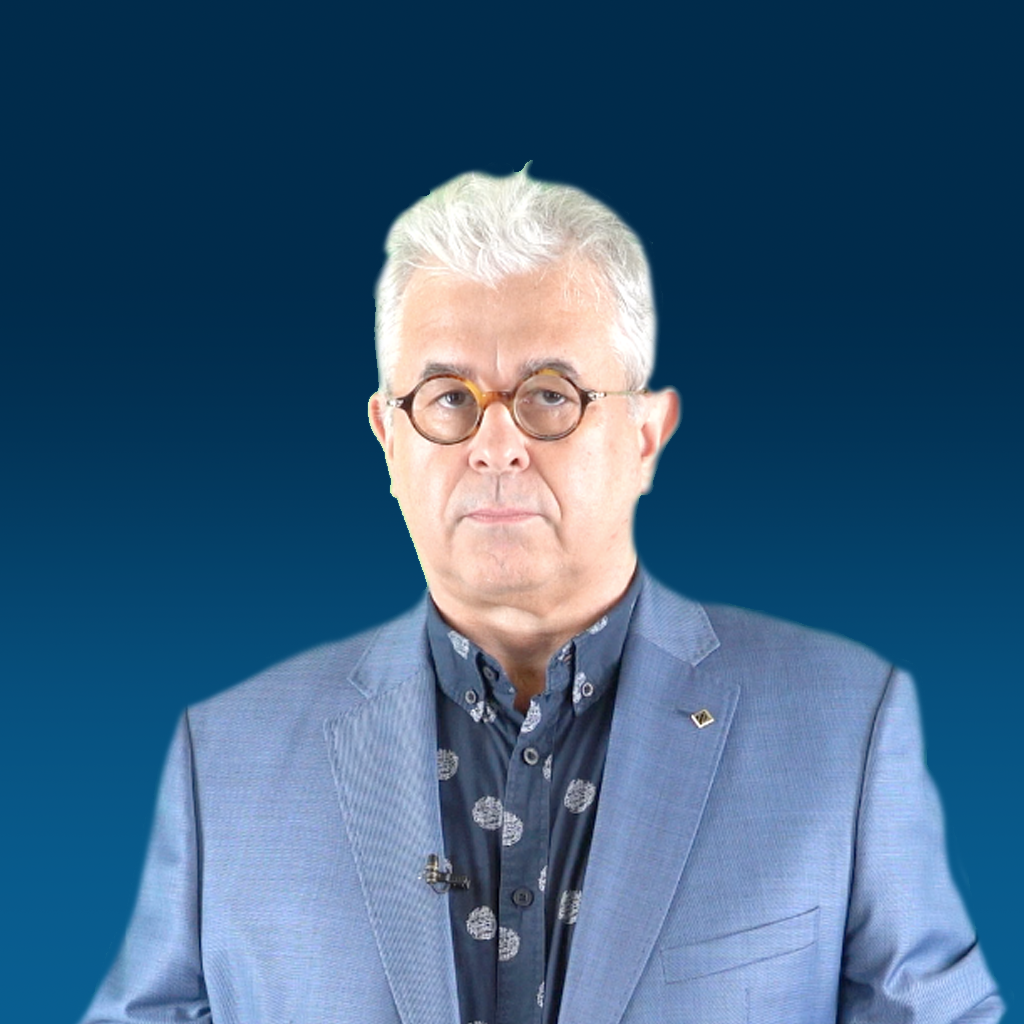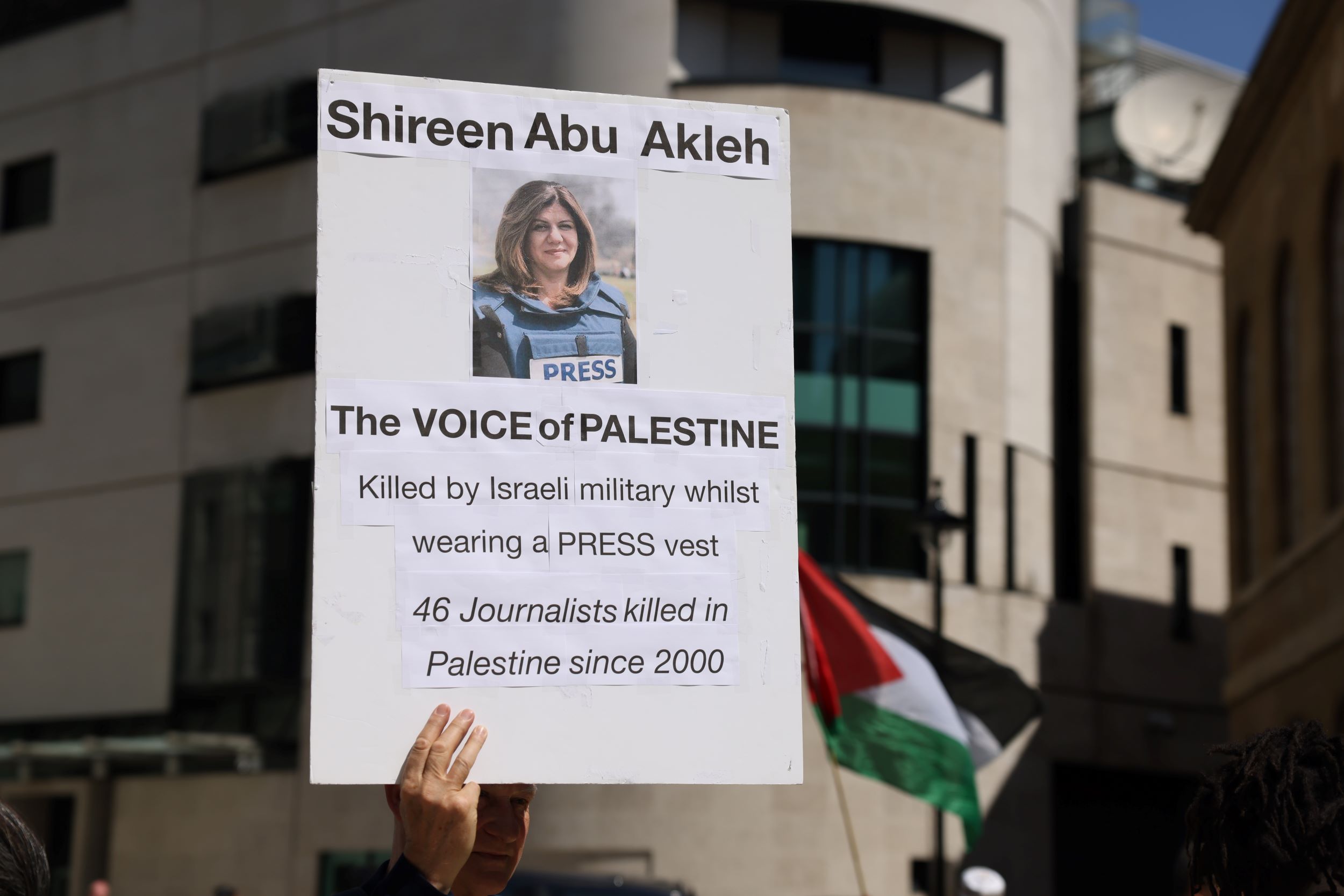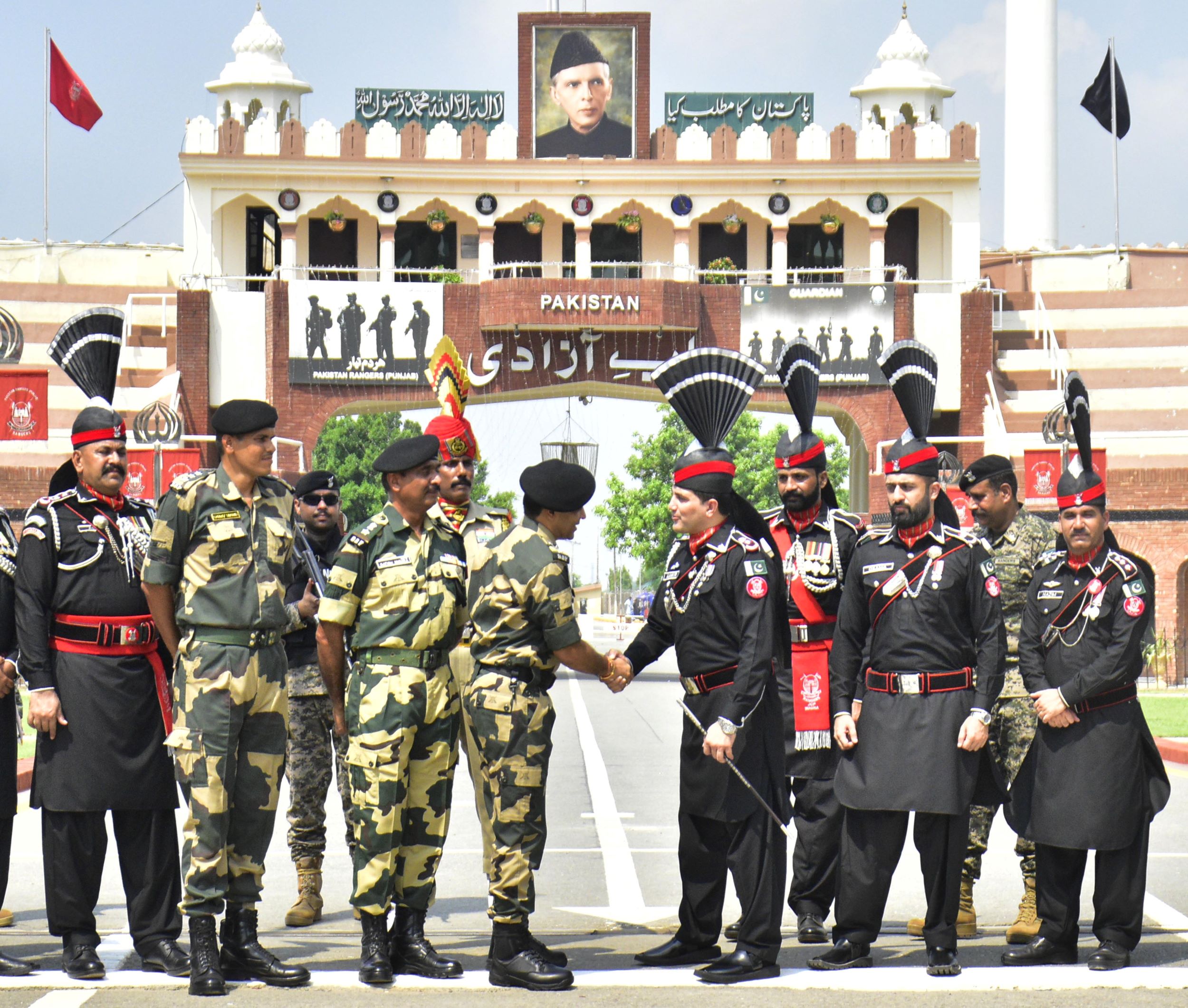أكملت الاستعدادات مع فريق الجزيرة في إدلب لتغطية آثار المنخفض الجوي في مخيمات النازحين ليلة السادس من فبراير/ شباط، وبحسب الخطة كان علينا أن نتجه إلى أحد المخيمات الغارقة بمياه الأمطار في الصباح التالي، لكن الزلزال قد دمر خطتنا كما دمر مئات البيوت في سوريا. فمأساة نازحي المخيمات لم تعد شيئا يذكر أمام هول الكارثة التي حلت بالمدن السورية الواقعة على خط الحدود مع تركيا.
الإحساس بالمسؤولية كصحفي تجاه الجمهور أمر جيد ومفيد خلال يوميات العمل العادية، لكن ذلك قد ينقلب إلى عبء كبير خلال التعرض للكوارث الطبيعية. فحين يمد الزلزال يده إلى سريرك ويوقظك بصوته المخيف، وتسارع مصدوما إلى الاطمئنان على عائلتك، وتزيد من توترك حالة الهلع في الجوار والحي والمدينة بأكملها، ثم تنجرف الأخبار بسرعة كالسيل مع غياب مصادرك التي اعتدت الوثوق بها، يجبرك الإحساس بمسؤوليتك كصحفي إلى تجاوز الصدمة لتباشر في العمل، وعلى الأقل، بعد عملية الفرز السريعة للأخبار والشائعات المشوشة لاختيار الأصدق منها حسب مصادر ورودها، يجد الصحفي نفسه ملزما بإعلانها للجمهور، لاسيما أن مهمته في مثل هذه الظروف تتخطى عملية الإخبار إلى المساهمة بتوجيه فرق المساعدة ودفع متطوعي الإنقاذ إلى التوجه إلى المناطق الأكثر تضررا.
وبعد الاطمئنان على سلامة أعضاء الفريق وعائلاتهم توجهت مع المصور وفني الاتصال إلى المواقع المدمرة، معتمدين في البداية على ما تصدره منظومات الإسعاف العاملة في المنطقة عن المواقع التي توجه فرقها إليها، ثم على مقاطعة ما ينشر على مواقع التواصل الاجتماعي مع الأخبار التي بدأ بنشرها الدفاع المدني السوري، لنأخذ في النهاية صورة كاملة عن أكثر المناطق تضررا، وبالفعل وصلنا إلى مدينة حارم عند الحدود السورية التركية.
الإحساس بالمسؤولية كصحفي تجاه الجمهور أمر جيد ومفيد خلال يوميات العمل العادية، لكن ذلك قد ينقلب إلى عبء كبير خلال التعرض للكوارث الطبيعية.
بين الحرب والزلزال
كانت مشاهد الدمار رفيقة تغطياتنا على الدوام، في المدن التي تتعرض لقصف قوات النظام والمقاتلات الروسية. ولئن ساعدنا ذلك على تجاوز الآثار النفسية لرؤية بعض المباني المدمرة في طريقنا إلى الحدود السورية التركية، أعادنا الوقوف أمام أكوام الدمار الممتد في حارم إلى دائرة التناقض بين الخضوع للصدمة مرة أخرى، أو التوازن الذي يفرضه نقل الخبر. لقد أحدث الزلزال هناك في وقت قصير دمارا لم نشهده في أي عملية قصف وقعت خلال الحرب. وللدمار قصص كثيرة مع الصحفي في مناطق الحرب، حين تتدثر المدينة بلونه الكئيب، أو رائحته التي تخنق الأمل، فالغبار المتصاعد في أثناء الانهيار، يترك أثره طويلا في الجو، وهو يتجدد كلما حرّك المنقذون الركام، ليعيد إلى الذاكرة لحظات الخراب الأولى، وما رافقها من ألم. وعند معاينة الآثار التي يتركها الركام على أجساد الضحايا، تبتعد الكاميرا التزاما بالمعايير المهنية، وحفاظا على مشاعر الجمهور وذوي الضحايا، لكنها تترك آثارا عميقة في نفس الصحفي تخبره دائما عن قسوة الفاجعة التي كان شاهدا عليها، وحين يكون الدمار بفعل آلة الحرب التي يستخدمها البشر، فعلى الصحفي أن يلتزم الحياد والموضوعية، لأن ذلك قد يفسر بمثابة انحياز لأحد أطراف الصراع ما يصيب مهنية الصحفي في مقتل، لكن في حالة الكوارث الطبيعية لا تمر المهنية بنفس الطريق الشائك، ولحسن الحظ أن أحدا لا يناصر الزلزال أو يسمع وجهة نظره.
من عادة المدن المنكوبة أنها لا تقدم لزوارها أي شبكة اتصال، كما أنها تتخلص من التيار الكهربائي، حتى لو وصل إليها مخافة أن يحدث أي ضرر، وذلك ما يزيد من مصاعب العمل الصحفي. لذلك لجأنا لتشغيل أجهزة الاتصال التي اعتدنا على استخدامها في مناطق الجبهات الخطيرة، وقد زاد استمرار هطول الأمطار من مصاعب تشغيلها ومخاوف تلفها، وقد أثّر تجمع الناس على جودة أدائها بشكل سلبي، ووسط أجواء البرد والكارثة، كان الوصول إلى الإنترنت بالنسبة إلينا مثل الوصول إلى اليابسة بعد ضياع في ظلمة محيط.
الاهتمام بأخبار الفرح ليس مبالغة
يخيّم الحزن على مواقع الدمار بشكل ثقيل، وحين يعمل الصحفي بين ذوي الضحايا أو الناجين المحتملين، فإن الأمر يتسم بالكثير من التعقيد، ويلزم الكثير من الحذر حتى لا تثار حفيظة أحد منهم، خاصة فيما يتعلق بالتحركات أو انتقاء المفردات حول الضحايا وأعدادهم، فهؤلاء مذهولون أمام وقع الكارثة، وقد تحولت بيوت أحبابهم بسرعة صادمة إلى أطلال تدفن أصحابها.
وعلى الجانب الآخر يعمل متطوعو الإنقاذ لساعات دون توقف، يزيد تعبهم كلما أخرجوا شخصا فارق الحياة، والشيء الوحيد الكفيل بتغيير المشهد، أن ينجح المنقذون بإخراج ناج بحال جيدة، فتتسارع وتيرة العمل طمعا في الوصول إلى المزيد من الأحياء، كما تتجدد آمال أولئك المنتظرين لأي خبر عن ذويهم، لذلك كله، يجد الصحفي نفسه مدفوعا للاحتفاء بأخبار الإنقاذ دون تردد، رغم أنه في الواقع ما زال هناك العشرات تحت الأنقاض.
مهمة الصحفي في مثل هذه الظروف تتخطى عملية الإخبار إلى المساهمة بتوجيه فرق المساعدة ودفع متطوعي الإنقاذ إلى التوجه إلى المناطق الأكثر تضررا.
انهار سد لكنه ترابي
في الفترة التي أعقبت الزلزال سيطرت حالة من الخوف على السكان بعد ما عاينوه من مشاهد قاسية، وبدأت الإشاعات غير العلمية بالانتشار، والخوف يولد الشائعات، والخيال الشعبي يطلق العنان لأي خبر يرد من هنا أو هناك فيترك عشرات السكان خارج منازلهم مخافة وقوع زلزال جديد.
في اليوم الرابع من الزلزال استيقظت على خبر مفاده انهيار سد على نهر العاصي في منطقة الحدود السورية التركية تحت تأثير الزلزال، وبدأ الناشطون المتحمسون بتداول الأمر كما لو أن كارثة أخرى ستحل بالمنطقة، وكانت معلومات قد وردت فعلا عن ارتفاع منسوب مياه نهر العاصي إلى مستوى غير مسبوق بعد الزلزال.
حاولت الوقوف على حقيقة الأمر لكن الخبر ورد من قرية نائية والسلطات الرسمية زادت الأمر تعقيدا حين نفت وجود سد في المنطقة، لكن من أين أتت إذا صور البيوت الغارقة بالمياه؟ ولماذا يصر الناشطون على التهويل بشكل مخيف بشأن كارثة يمكن أن تقع؟ أسئلة تشوش الصحفي وتفرض عليه الذهاب إلى عين المكان ليرى الأحداث بعين متوازنة.
وصلنا إلى قرية التلول التي غرقت فعلا بمياه نهر العاصي وسمعنا شهادات سكانها بشكل مباشر وبدأنا نحل لغز السد المنهار شيئا فشيئا، فسكان القرية الواقعة شمال محافظة إدلب أقاموا قبل سنوات حاجزا ترابيا يفصل بين بساتين القرية ومياه نهر العاصي، وأطلقوا عليه اسم السد تعظيما للمشروع الذي يرونه من وجهة نظرهم إنجازا كبيرا، لأنه سيعيد الحياة إلى مساحات من البساتين ويعيد المزارعين إلى أرضهم التي حرمتهم مياه النهر من زراعتها، كما أنه سيثبت قدرتهم على تطويع مياه النهر ضمن المعركة التي خاضها سكان المنطقة ضد النهر خلال تاريخهم ليكون سببا للحياة بدلا من أن يكون سببا للموت.
استخدمنا جرارا زراعيا للتنقل في المساحات المغمورة بالمياه ووصلنا فعلا إلى الجزء المنهار من الحاجز الترابي حيث تدفقت المياه بغزارة حتى وصلت إلى بيوت القرية وأجبرت الكثير من سكانها على النزوح، ومما بدا لنا من فوق ذلك الحاجز أن المياه لن تطال القرى المجاورة لأنها تستريح فوق منطقة عالية، كما أن السد هذا لا يحجز خلفه بحيرة كما تفعل بقية السدود، لذلك فإن المياه التي تتدفق نحو القرية هي جزء من مياه النهر فقط.
خبر لم يأت
التعرض لكارثة مع هشاشة البنية التحتية والقطاع الصحي بعد المرور بحرب طويلة أمر صعب، كما أن تجاهل نداءات الاستغاثة التي أطلقها العاملون الإنسانيون ترك مشاعر مريرة بالخذلان عند السكان في المنطقة.
تجاوز الدفاع المدني السوري مرحلة رفع الأنقاض بمساعدة متطوعين من السكان، لكن أصحاب البيوت المتصدعة ظلوا في الخيام دون أي أمل بتعويض أو ترميم منازلهم التي يخافون من انهيارها بشكل كامل في حال تجددت الهزات الارتدادية، وفي الزيارة الأخيرة لمركز الإيواء في حارم، كان النازحون يلحون بالسؤال عن أي معلومة تتعلق بمصير بيوتهم، وكم وددنا أن يكون في جعبتنا خبر جيد لهم، لكن ذلك الخبر لم يأت.
